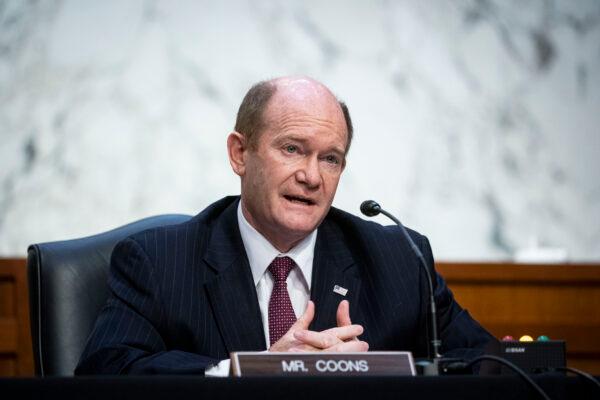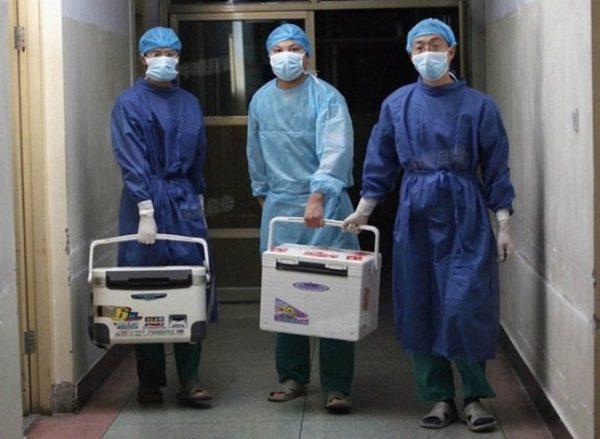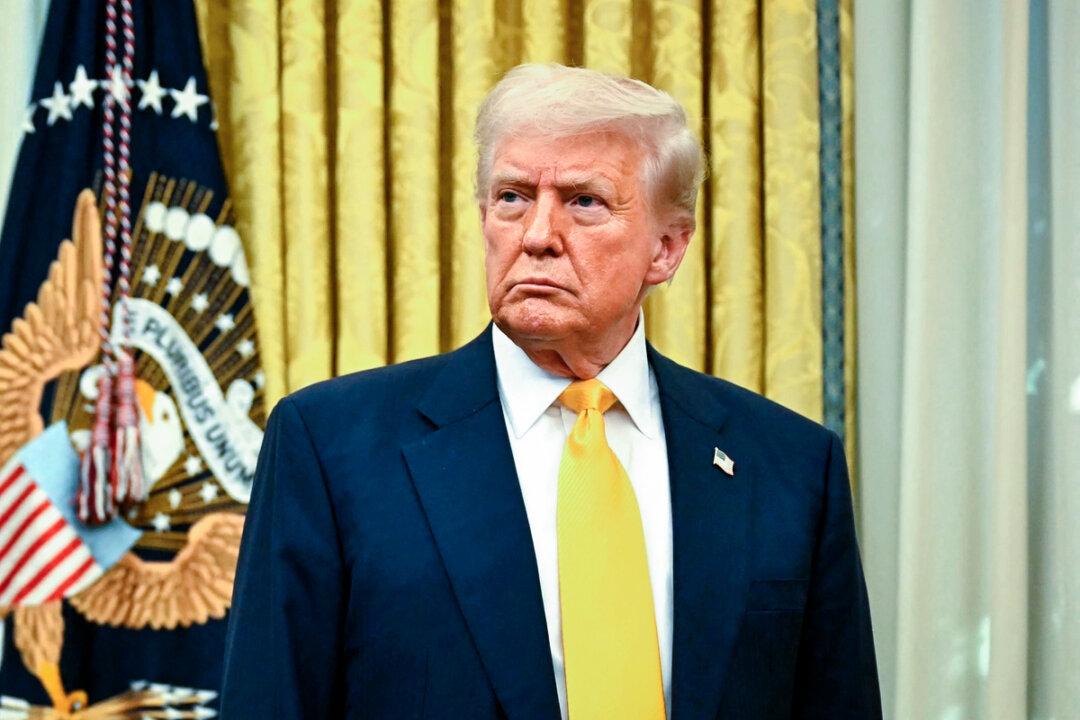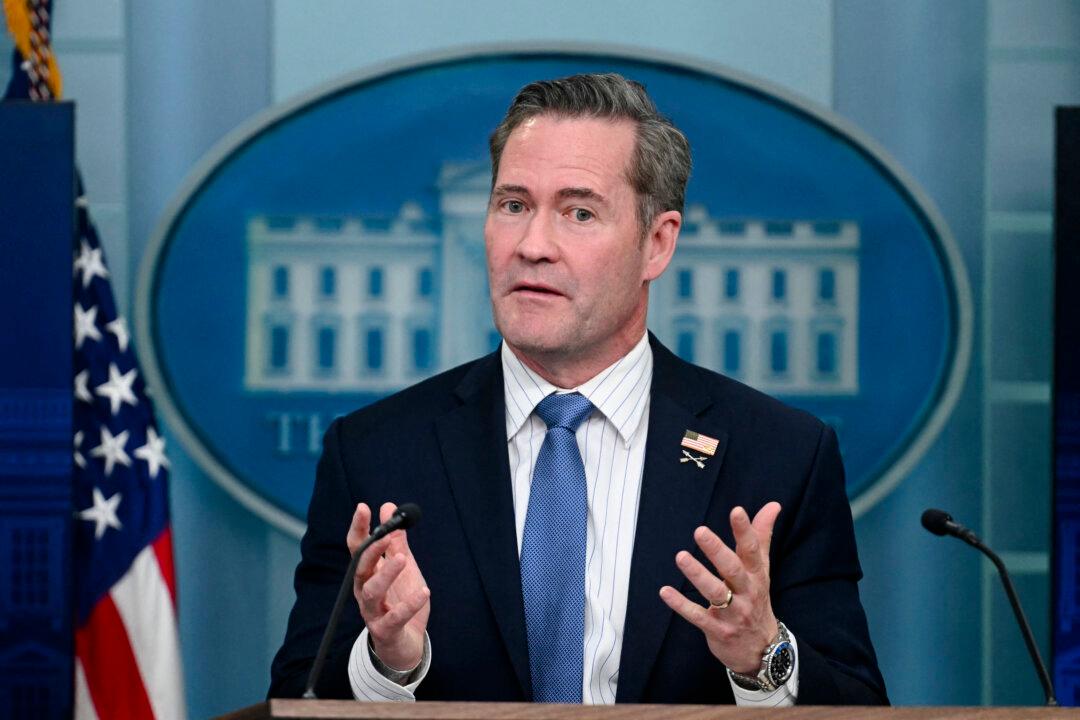WASHINGTON—A bipartisan group of U.S. lawmakers last month introduced the first legislation to combat global organ trafficking, which, if approved, would end U.S. silence on the lucrative and illegal practice perpetrated by the Chinese communist regime, according to experts.
Noting that the first congressional hearing on the issue was held in 1996, she said the United States and other rights-respecting nations should confront the evidence and hold the Chinese Communist Party (CCP) accountable “for its complicity.”
There have been a number of congressional hearings and resolutions condemning forced organ harvesting. But until now, there has been no comprehensive legislation signed into law requiring the U.S. government to take action on the issue.
Hence, the new bill, the Stop Forced Organ Harvesting Act, is an important step in that direction, according to human rights advocates.
“The bill comes at an incredibly important time, since Beijing’s genocidal actions in Xinjiang makes very clear the lengths to which the CCP is willing to go to control Uyghur Muslims and other religious and ethnic minorities in China,” Olney said.
If enacted, the measure would authorize the U.S. government to identify, expose, and sanction individuals and government officials responsible for human trafficking or organ harvesting across the world. The United States would be able to deny or revoke passports for people who engage in the illegal purchase of organs.
The bill also requires an annual report by the U.S. State Department on human organ trafficking in foreign countries. The report would introduce a tiered ranking system for determining the countries that have the lowest (tier one), intermediate (tier two), and the highest (tier three) levels of organ harvesting and trafficking. This reporting system would expose governments that are directly or indirectly involved in the crime.
Smith, who has fought the issue of forced organ harvesting for more than 20 years, said that the United States “must do more to put an end to the horrific abuse by international human trafficking gangs, terrorist organizations, and even some governments—China’s Communist regime in particular—who kill innocent people and sell their organs for profit.”

The China Tribunal
Allegations of China’s forced organ harvesting for transplant surgery first surfaced in 2006. Former Canadian Secretary of State (Asia-Pacific) David Kilgour and human rights lawyer David Matas conducted independent investigations and later published a report, after finding more than 18 different kinds of evidence to support the allegations. Adherents of Falun Gong, a spiritual discipline that’s also known as Falun Dafa, were prime victims of China’s lucrative organ transplant trade, they concluded.“There has been a reticence in the international community, and even in the human rights community to speak about this issue, and that is precisely because of the propaganda that has been advanced on this issue by the Chinese Communist Party,” Olney said, adding that a recent development has turned the tide.
Following its investigation, the China Tribunal, an independent people’s tribunal based in London, concluded that forced organ harvesting had taken place in China for years “on a significant scale,” with Falun Gong practitioners being the “principal source” of human organs.
Independent Assessment
The China Tribunal’s decision has made “a substantial difference” in the fight against CCP’s forced organ harvesting trade, according to Susie Hughes, executive director of the International Coalition to End Transplant Abuse in China (ETAC).The bill is also one of the most comprehensive ever introduced, Hughes noted, as it seeks to combat both global organ trafficking and the state-sanctioned trade in China.
The bill sets up a reporting mechanism in which the State Department would be responsible for assessing whether a country is designated as tier one, tier two, or tier three. Thus, the U.S. government wouldn’t rely on the views of other parties such as the World Health Organization (WHO), and this is an important feature of the bill, Hughes told The Epoch Times.
The Stop Forced Organ Harvesting Act removes this problem by ensuring the U.S. government independently evaluates the level of organ trafficking in countries of concern. Under the bill, a country would be rated tier three if it carried out a high level of forced organ harvesting or trafficking with direct or indirect support from its government.

Matas, who has been investigating China’s forced organ harvesting practice for more than a decade, told The Epoch Times that the U.S. bill is unique and important because it sets up a reporting mechanism.
While the bill wouldn’t restrict organ transplant tourism, he said, it would mandate an annual report on collaboration between the U.S. institutions and foreign entities involved in forced organ harvesting. This would allow the U.S. government to determine whether organ transplant surgeons in a tier-three country were trained by U.S. hospitals or universities. The bill would also prohibit the export of transplant surgery devices to entities involved in organ harvesting.
The bill could inspire more governments to take similar actions, Matas said.
More evidence of organ transplant crimes continues to emerge, even after the China Tribunal’s final judgment, which underscores the urgency of passing a measure to hold the Chinese regime accountable. Investigative reports show that the number of organs harvested from prisoners of conscience continues to rise and that organs are available on demand, with short waiting times.
According to human rights experts, China is the only country that’s known to conduct state-run organ harvesting, a large-scale orchestrated crime involving the country’s health institutions, judiciary system, prison system, detention camps, military, and military hospitals.
Coons, a co-chairman of the Senate Human Rights Caucus, described forced organ harvesting as “inhumane, immoral, and cruel” and urged the U.S. government to do everything to “fight this despicable practice.”





